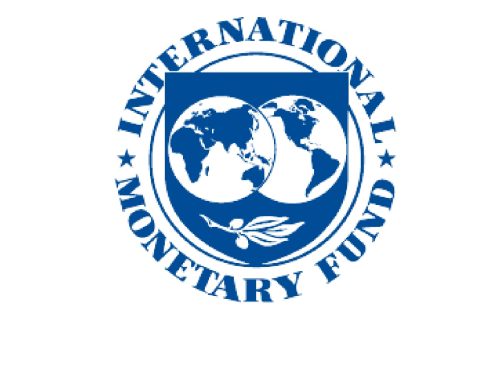The International Monetary Fund (IMF) has disclosed that some emerging markets and developing economies face immediate and serious risks of currency substitution by crypto assets.
The IMF made this known in a report titled, ‘Global Crypto Regulation Should be Comprehensive, Consistent, and Coordinated’ released on Thursday.
Join our WhatsApp ChannelIn the report, the IMF said its mandate is to safeguard the stability of the international monetary and financial system.
The Washington DC-based fund said: “Some emerging markets and developing economies face more immediate and acute risks of currency substitution through crypto assets, the so-called cryptoisation.
“Capital flow management measures will need to be fine-tuned in the face of cryptoisation. This is because applying established regulatory tools to manage capital flows may be more challenging when value is transmitted through new instruments, new channels and new service providers that are not regulated entities.”
According to the IMF, crypto assets will soon pose systemic financial stability in some countries as policy makers struggle to the monitor risks.
It added that crypto assets were drastically changing the financial system it was trying to protect.
The IMF said: “Crypto assets and associated products and services have grown rapidly in recent years. Furthermore, inter linkages with the regulated financial system are rising.
“Policymakers struggle to monitor risks from this evolving sector, in which many activities are unregulated. In fact, we think these financial stability risks could soon become systemic in some countries.”
“While the nearly $2.5tn market capitalisation indicates significant economic value of the underlying technological innovations such as the blockchain, it might also reflect froth in an environment of stretched valuations.”
According to the international fund body, identifying, monitoring, and management of crypto-related risks continues to defy regulators and firms.
It added that in developing economies for instance, cryptoisation was threatening to replace domestic currency, and circumvent exchange restrictions and capital account management measures.
The IMF said, “Such risks underscore why we now need comprehensive international standards that more fully address risks to the financial system from crypto assets, their associated ecosystem, and their related transactions, while allowing for an enabling environment for useful crypto asset products and applications.”
The IMF added that crypto’s cross-sector and cross-border remit limits the effectiveness of national approaches. The body said: “Countries are taking very different strategies, and existing laws and regulations may not allow for national approaches that comprehensively cover all elements of these assets.
“Importantly, many crypto service providers operate across borders, making the task for supervision and enforcement more difficult. Uncoordinated regulatory measures may facilitate potentially destabilising capital flows.”
According to the IMF, there is a need for a global regulatory framework that provides a level playing ground along the activity and risk spectrum.
It said crypto-asset service providers that deliver critical functions should be licensed or authorised.
The IMF said: “These would include storage, transfer, settlement, and custody of reserves and assets, among others, similar to existing rules for financial service providers.
“Licensing and authorisation criteria should be clearly articulated, the responsible authorities clearly designated, and coordination mechanisms among them well defined. Requirements should be tailored to the main use cases of crypto assets and stablecoins.
“Crypto assets are potentially changing the international monetary and financial system in profound ways.”















